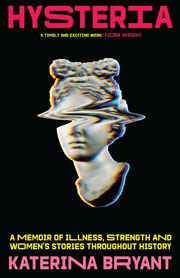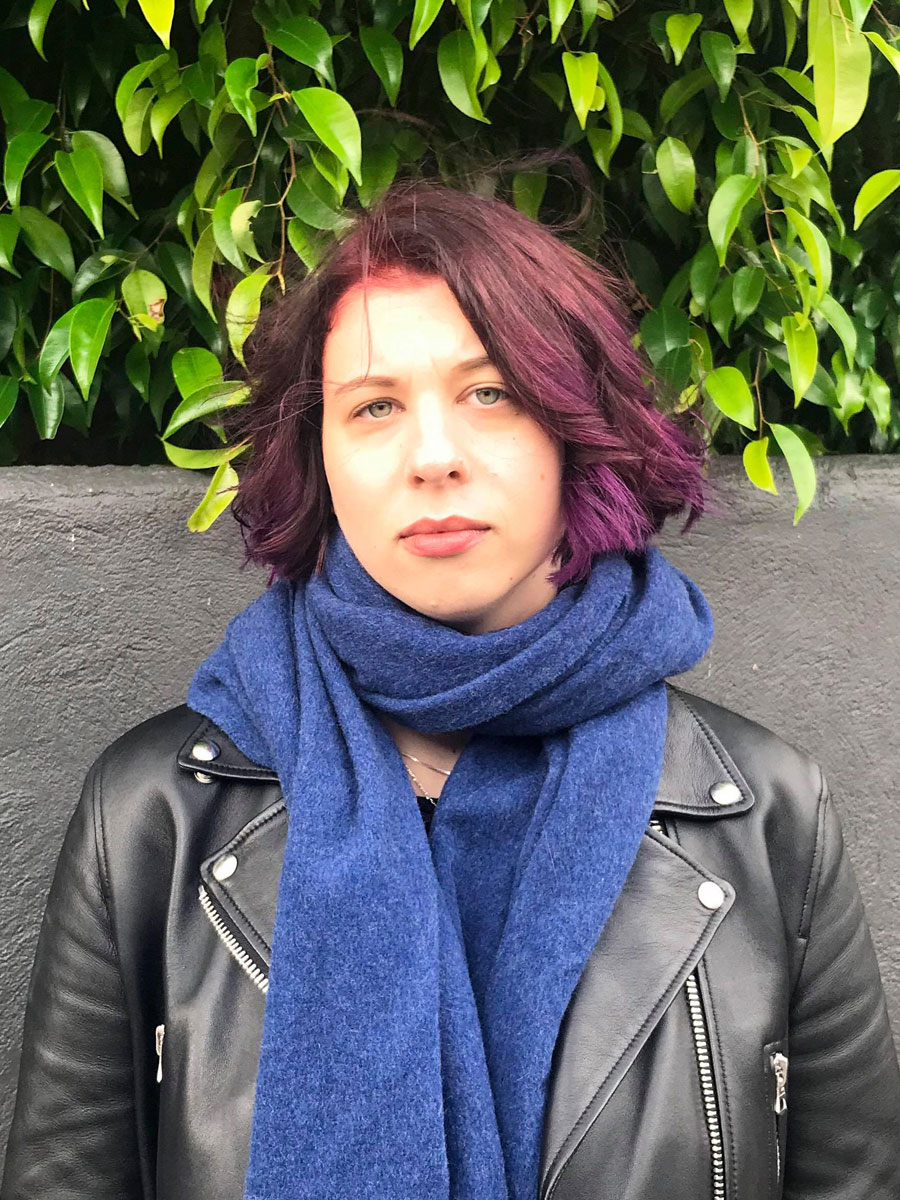Hysteria in the time of COVID
Adelaide author Katerina Bryant’s new book about the experience of living with chronic illness resonated strongly with reviewer Heather Taylor Johnson – especially during the recent isolated times.


The cover illustration of Katerina Bryant’s Hysteria.
As I read Hysteria, Adelaide author Katerina Bryant’s debut book about developing chronic seizures and trying to understand what that means, I lay in my bed, day three of a mild but unrelenting bout of vertigo, the world outside my window hectic, though socially distanced.
A total of 30,609,907 cases of COVID had been confirmed and 953,810 people from around the world had died. Victoria, in week five of its stage-four lockdown, was nearing a milestone with 113 confirmed daily cases.
Due to these isolated times, society was affirming that we could, indeed, learn about accessibility from the disabled community. It turns out working from home gets things done, and Zoom meetings get people heard; telemedicine can even diagnose you and prescribe you.
 Having lived in what author and sociology professor Arthur Frank calls “the remission society” for 20 years, I could have told you this, but there is also more.
Having lived in what author and sociology professor Arthur Frank calls “the remission society” for 20 years, I could have told you this, but there is also more.
During her seizures, Bryant experiences symptoms of depersonalisation disorder – she sees herself from outside her body, the world no longer feels real – and so her physiological symptoms enter into the psychological.
Is she physically ill or mentally ill? She falls into a limbo of a diagnosis, historically termed “hysteria”, and promptly begins researching it. The book, therefore, is a memoir of her becoming – becoming sick, becoming a writer, becoming an activist.
How does she make peace with an illness that can’t be properly defined without being vague, gendered and suspect? She looks toward her ancestors, women infamously known for having been hysterical, in the hopes that their stories will somehow inform hers, but it’s not so straightforward as entering the archives and coming out with a list of similarities.
Bryant’s illness is controlling, directing her body and dictating to her thoughts and emotions. She can’t escape it, and it’s this new sense of identity that’s always in question.

Adelaide author Katerina Bryant.
It’s September 2 when I open her book – subtitled A memoir of illness, strength and women’s stories throughout history – and begin to read, unable to escape my own illness unless it’s to focus on COVID-19. Isn’t this how most people are feeling now, living through the pandemic, unable to gather, travel, kiss hello or, in some cases, leave the house?
We have to obsessively navigate a new way to be as we physically separate from our regular networks. Who even are we, as a society, as individuals, if we’re not who we used to be?
Bryant writes about the sense of remoteness from her working body when she says, “Feeling outside of myself may allow me to connect better with who I am, when I feel present”, meaning the illness, in taking her away from herself, actually gets her closer to who she really is. Perhaps she’s stronger than she thinks she is. Perhaps she’s more complex. Perhaps she’s actually improved.
When I asked her what she thought about the comparisons of coming to terms with living with chronic illness and coming to terms with living in isolation, she spoke in relationship to writing: “I think writing means a constant checking in and renegotiation with one’s identity and this is intensified when writing about illness and/or disability. And now, in current circumstances, I think this idea of self is being more intimately questioned as we live in isolation.”
It’s why I am drawn to turning this review into another discussion on COVID.
How do I feel about living in a socially distanced world where I only leave the house if I have to leave the house, with options to do otherwise sparse and ill-advised?
Personally, it’s working for me. My disability is vertigo due to a hypersensitivity of the audio and visual, and especially of motion. Our present slower pace has me reconsidering, as so many others are, the speed at which I lived my life pre-COVID.
I’m afraid when we get back to “normal” (will we ever get back to normal? – this is also a question chronically ill people commonly ask) I won’t join in.
As I lay in my bed, calmed, at least, by the fact that I have no upcoming events filling my diary, I smirk knowingly, reading the bit in Hysteria where Bryant muses: “I think of what it means to become so overwhelmed in the world that you have to remove yourself from it. I wonder if I’ll ever be able to re-enter it, not afternoons at a time but fully.”
…the pandemic could gift those outside the remission society more empathy
This is so apt, as the longer we live without social interaction, the more likely we are to fear it. Are you finding you’re feeling more insecure? Are you finding you’re anxious when you enter a public space? Thanks to COVID, this is real, this is happening, and in the remission society, we’re used to it.
If anything (alongside diminishing our carbon footprints and giving the earth a little space to breathe, nothing to scoff at there), the pandemic could gift those outside the remission society more empathy – so this is what it’s like to be…um…isolated! Yeah, this is what it’s like.
Do you know anyone with chronic illness? Check in with them on occasion, just as you and your friends checked in / are checking in on one another during lockdown.
Traversing a new identity is not an easy task, and when your physical and mental wellbeing are at risk, support is so important.
Katerina Bryant’s Hysteria: A Memoir of Illness, Strength and Women’s Stories Throughout History is available now in bookstores.
Heather Taylor Johnson is a novelist, poet and editor of the poetry anthology Shaping the Fractured Self: poetry of chronic illness and pain.




